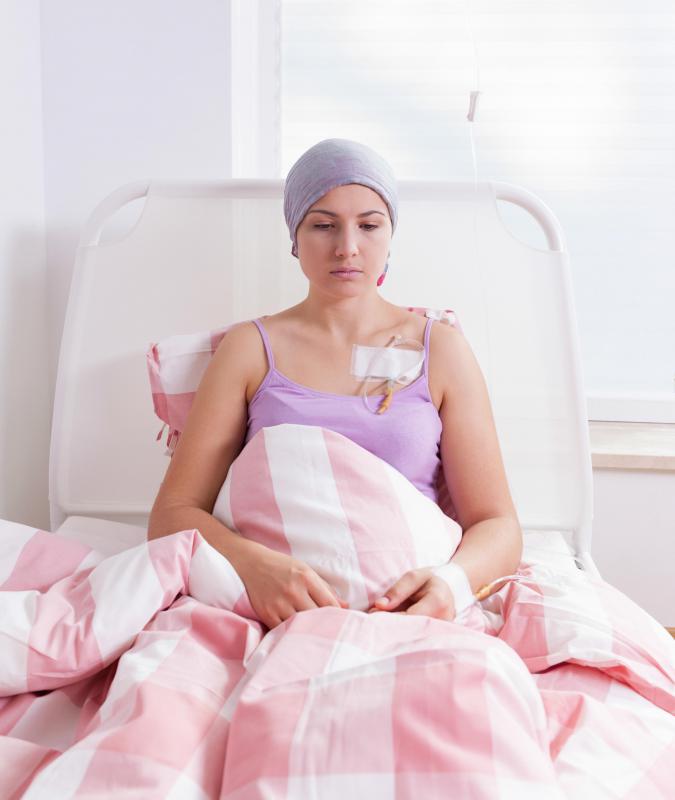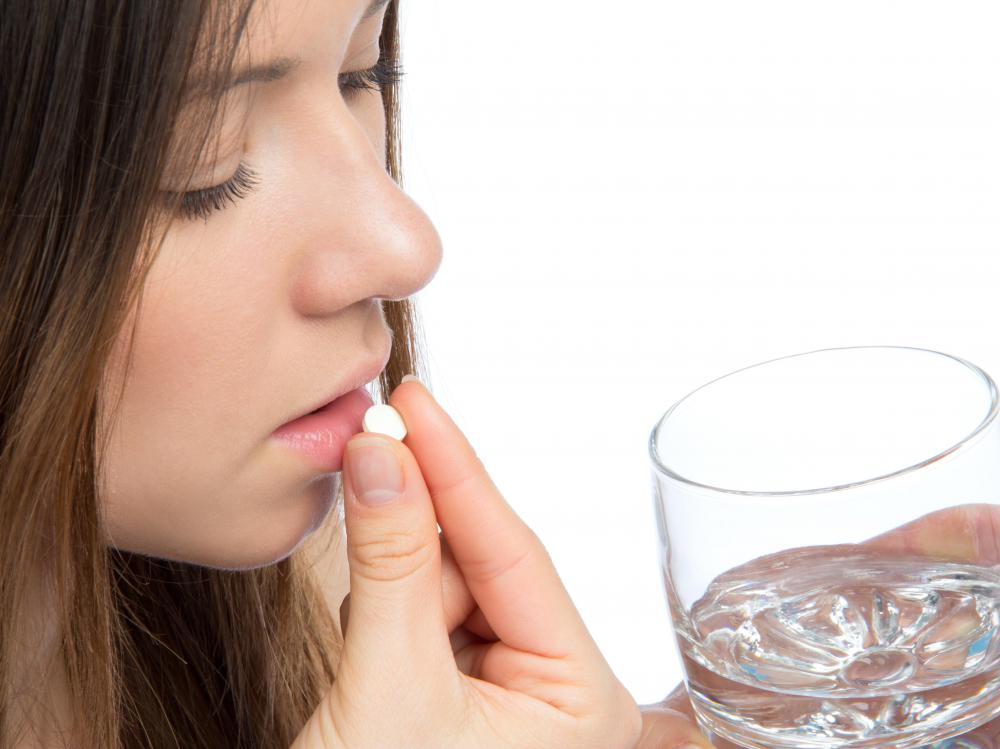At TheHealthBoard, we're committed to delivering accurate, trustworthy information. Our expert-authored content is rigorously fact-checked and sourced from credible authorities. Discover how we uphold the highest standards in providing you with reliable knowledge.
What are the Best Tips for Hysterectomy Aftercare?
Post-surgical care following a hysterectomy typically includes a specific drug regimen and plenty of rest. Depending on the extent of invasiveness of the surgery, hysterectomy aftercare may involve one to several days spent in the hospital. Up to eight weeks of light to no work may also be advised.
Typical hysterectomy patients remain in the hospital for two to five days following the procedure. Hysterectomy aftercare during these first few days is provided by medical staff. This care often includes a morphine pump to dispense medication at the patient's request or a post-operative epidural to manage pain.

Pain management following the patient's release from the hospital is a key component of hysterectomy aftercare. Most women feel varying degrees of discomfort following the operation. These levels of pain are usually dependent on factors associated with the operation, such as its duration, complications, and type of hysterectomy performed.
Most women are prescribed pain medication to help ease the discomfort after surgery. Such painkillers are typically narcotics, and are designed to be taken every four to six hours. Since these pain medications often cause constipation, doctors usually prescribe a stool softener along with the prescription.

Patients can usually take over-the-counter anti-inflammatory medicine in conjunction with prescription drugs after a hysterectomy. A doctor should issue recommendations on which drugs are safe, as well as how often they should be administered. Non-medicated pain management techniques, such as the use of heating pads, are also available.
Limiting one's movement is an important part of hysterectomy aftercare. Walking should be slow, easy, and brief during the first few days. Patients should not engage in heavy lifting, climbing stairs, or operating motor vehicles until released by a doctor. Doctors may also prescribe specific dietary guidelines to follow for optimal healing.

Part of post-operative hysterectomy care includes keeping wounds clean and free of infection. To do this, sheets should be washed prior to the surgery, allowing the patient to rest comfortably on clean linens. Loose-fitting clothing should be worn rather than constrictive layers that can irritate the wound.
During hysterectomy aftercare, women should watch for signs of infection or other problems. Bleeding, dizziness, fever, and swelling should be reported to a doctor. After a hysterectomy, a woman will no longer experience monthly periods from her menstrual cycle. A vaginal discharge and some blood, however, may be released following a hysterectomy. Plenty of sanitary napkins should be kept on hand for post-surgical care.
AS FEATURED ON:
AS FEATURED ON:
















Discussion Comments
@dfoster85: I can only speak for a vaginal hysterectomy vs c-section and vaginal has been so much easier for me. I am six days post op and feel better than I did a month before surgery. My advice is get a bunch of movies and fruit to snack on while she is recovering.
My biggest issue has been pooping pain (not constipation) but they move everything and my bowels are bruised. I started taking colace as soon as I got home from the hospital and I am glad I did. Other than that my biggest issues has been boredom. Hope your mom's recovery goes/ went well. Congratulate her on joining the ranks of us hystersisters and not having to pack feminine products on vacations anymore!
I had a lap hysterectomy three days ago. I was released from the hospital in less than 24 hours. I think that was a mistake. I am not a good patient and don't like to be idle, so my first day home I overdid it and was in terrible pain that night. I'm hoping for a speedy recovery now, and I'm forcing myself to do mostly nothing.
@JaneAir - Good thinking. I know having a hysterectomy also results in hormonal changes. These hormonal changes can results in changes in mood that the patient might not be able to explain. I'm sure this is very frustrating but counseling could help the patient cope with it better.
I am thinking that some kind of counseling should also be part of hysterectomy recovery. Since the surgery removes part of the female reproductive system I think women might feel more upset about it than say, having a gallbladder removed. I've heard women say they felt like "less of a woman" because they couldn't have babies anymore. Counseling can help a woman who's had a hysterectomy work through these issues.
@dfoster85 - My aunt had this procedure recently. Recovery after vaginal hysterectomy is definitely faster. The hospital stay is often more like two to three days instead of three to five (kind of like when I had my C-section).
I don't know anyone who had an abdominal procedure for comparison, but my aunt couldn't work for six weeks and it was almost six months before she was really fully recovered as far as her energy levels, ability to exercise, etc.
Is recovery quicker after a vaginal hysterectomy? Are there any special tips for recovering from one? My mother is about to have this procedure and I want to know how to help her.
Post your comments